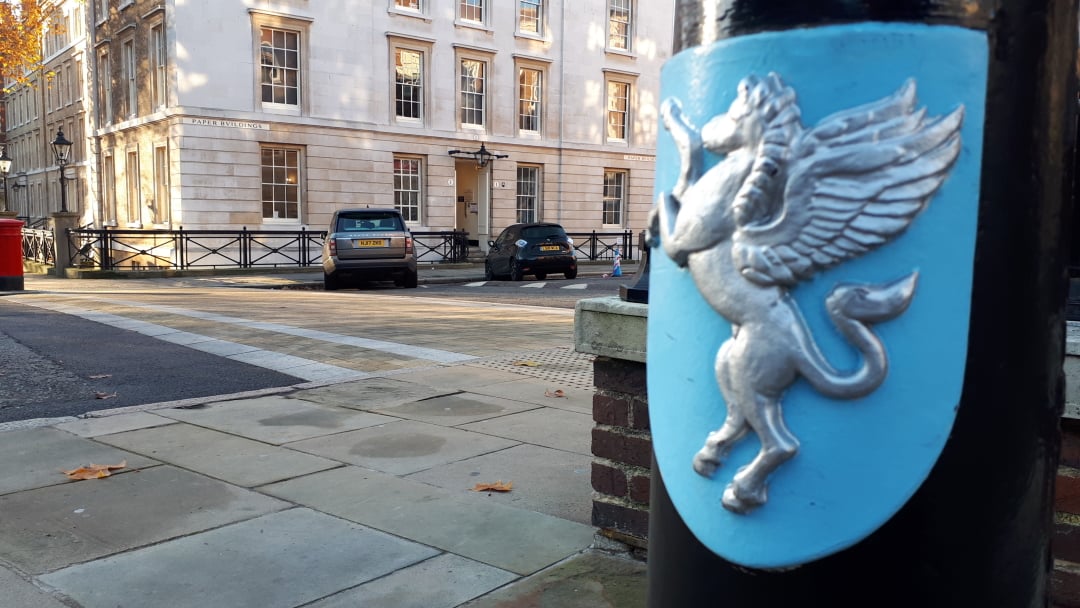Reporting the class action against the Post Office at the High Court


Something very weird happened today in court. I’ll set it up by saying the Mr Justice Fraser (Middle Temple) is either very good at appearing to be a very impressive human being, or he is one. He is encouraging to those who might have good reason to be intimidated, and he is courteous to the flunkeys who make things happen around him. He is measured towards the witnesses and he is sharp, combative, challenging and occasionally dismissive to the barristers who would seek to persuade him of their arguments. He is also knowledgable, I hope, or he wouldn’t be judge.
Occasionally J. Fraser chooses to lighten the mood through personal inquiry or a wry aside, but general he adopts an authoritative, respectful, world-weary tone. I’ve never, in four weeks of this trial, seen him surpised. I did today.
Patrick Green is the QC for the claimants. Here is the transcript:
MR GREEN: I just invite your Lordship to note the two paragraphs of the Generic Defence which I took you to in particular at the foot of the page the two paragraphs that were referenced by the parties in the definition of the Common Issues in relation to branch trading statements.
MR JUSTICE FRASER: Yes.
MR GREEN: The second point is that the audit documents that I gave your Lordship the references for, just a short point on those: factually what is now being said is just not what happened on the ground at the time.
MR JUSTICE FRASER: Yes.
MR GREEN: And the third point is a short reference to the evidence of Mrs Stockdale on.
Let’s start at the top. My learned friend is putting to Mrs Stockdale:
”Question: And you knew that that statement was false ?”
MR JUSTICE FRASER: ”I actually have a reason for this.”
MR GREEN: Then your Lordship sees line 10 −−
MR JUSTICE FRASER: Hold on. (Pause) Yes…
MR GREEN: Question: You could have settled centrally and disputed it, if that is what you wanted to do?”
MR JUSTICE FRASER: And she says she was told she couldn’t do that.
MR GREEN: Yes. She’d been told in writing, at line 10, by a member of staff.
At the bottom, line: ”You could have settled centrally and disputed …”
Answer: I was told that I couldn’t do that within a year −−”
Question: By whom?”
Answer: It was written somewhere −− I have a letter actually with it written on.
Question: Perhaps my learned friend can show me that. I don’t think I have seen that.”
That, your Lordship will remember, is… in the middle:
”Dear Liz. If you’re able to tell me what product caused your loss I would be able to chase that
particular team for you.”
The context of this is her agreeing to repay the money assuming that the investigation that was going on has now been done, hence the letter, because she hadn’t heard anything about it.
MR JUSTICE FRASER: The letter is a letter of demand, I think.
MR GREEN: Indeed.
MR JUSTICE FRASER: Mr Kellett responds with the asterisk: ”On the understanding that you’re not allowed to settle any further losses until a year after this has been repaid.”
MR GREEN: Precisely her evidence. And your Lordship will note that 20 months from 5 November 2014 expires in July 2016, and she was of course dealing with May 2016 so she was still in the period −−
MR JUSTICE FRASER: Yes.
MR GREEN: −− of the 20 months specified in that document. And the short point is, my Lord, it wasn’t just my learned friend who hadn’t seen that document, it was everyone involved in her case at the time in the decision to terminate her, my instructing solicitors who asked for correspondence −− do you remember my learned friend’s re−examination? It was in the hands of solicitors. Correspondence requested, we didn’t get it.
We are the only party who have disclosed that correspondence in this litigation.
MR JUSTICE FRASER: That has not been disclosed by Post Office?
At this point a strange buzz went through the courtroom. Someone acting on behalf of the Post Office appears [seriously, m’learned friends, appears] to have withheld a document which had directly led to the termination of a Subpostmaster.
I would politely suggest, in journalistic terms, that is a Bad Thing.
What else happened today? There were moments of dry comedy.
Moment of Dry Comedy Number One
MR GREEN: .. we invite your Lordship to read that obviously in due course to have regard to the whole careful description of his evidence. But it is perfectly clear that he made perfectly fair concessions about things that he could remember. And then when he was asked ”What can you remember?” which you see halfway down 275.3, the question that was put to him, as we have described there on a fairly combative basis , he gave a measured and clear account of his recollection, and that does not come shining out of the account given of his evidence that you find at 587 at all.
MR JUSTICE FRASER: Understood. So you invite me to prefer your summary of Mr Sabir’s reliability in evidence than the Post Office’s attack on him.
MR GREEN: Indeed. I think that is basically the position with all the lead claimants.
MR JUSTICE FRASER: I had guessed that.
Moment of Dry Comedy Number Two
MR GREEN: My Lord, that was actually all I wanted to say really about the points of construction, unless there 5 are any particular points that I can −−
MR JUSTICE FRASER: Not on construction.
MR GREEN: −− help the court with on construction.
MR JUSTICE FRASER: So that is liability for loss done.
MR GREEN: Liability for loss we have done. Then −−
MR JUSTICE FRASER: Responding to the key planks.
MR GREEN: Responding to some of the key points. My Lord, can I just begin with the closing submissions at paragraphs 36 to 38.
MR JUSTICE FRASER: How many of these do you have? Just because I am interested.
MR GREEN: It depends how I break them down but about −
MR JUSTICE FRASER: It depends how you count them.
MR GREEN: It depends how I count them.
MR JUSTICE FRASER: Try starting at 1.
MR GREEN: I will go up from there…
MR JUSTICE FRASER: And add one from there.
Moment of Dry Comedy Number Three
MR GREEN: This was a table that I personally typed up and invited Post Office to respond to, to try and identify the true difference between the parties.
MR JUSTICE FRASER: As part of pre−trial preparation or something?
MR GREEN: Quite some time ago, my Lord, yes. If your Lordship looks at 64.1: ”To provide adequate training and support (particularly if and when …”
So that’s the term we were contending for, defendant’s case. ”Eg …” This was suggested −−
MR JUSTICE FRASER: By you?
MR GREEN: By me. I actually did the whole table and filled in an example for them to agree or not.
”Eg to provide only such training as was both necessary and reasonable.”
MR JUSTICE FRASER: In other words, to identify the difference between the parties on the nature and scope of the implied terms.
MR GREEN: Yes. Because if it is a distinction without a difference, it is pointless having a massive fight about it.
MR JUSTICE FRASER: And they wouldn’t fill it in.
MR GREEN: If you look at −−
MR JUSTICE FRASER: You give up your punchlines only very grudgingly.
MR CAVENDER: My Lord, can I give it? We did fill it in.
MR JUSTICE FRASER: You did. Alright.
MR GREEN: He did fill it in, it’s not quite the punchline. You’re going to have to look and see how.
If you go over the page {H/19/2}, your Lordship will see what the answer is there.
MR JUSTICE FRASER: Why couldn’t we have started with H/19? Did you not like the font they changed it into?
MR GREEN: The only point was that the term I suggested is his case to each lead claimant.
MR JUSTICE FRASER: But Mr Green, where does that −− or how does that advance the cause of judicial knowledge?
MR GREEN: The short point −−
MR JUSTICE FRASER: What is the short point?
MR GREEN: The short point is my learned friend appears to have changed from a position, and this arises in relation to the utility point on implied terms which we have covered in our −− which I have highlighted to your Lordship already. We covered it in our opening as well, the refusal to descend into specific terms, specific incidents or specific content. Your Lordship will see it no better illustrated than at 64.1 in response to an example text provided by me which mirrors −−
MR JUSTICE FRASER: Just give me a second. (Pause) Right.
MR CAVENDER: My Lord, can I make sure that ”common terms” there we are talking about are the agreed implied terms.
MR JUSTICE FRASER: Thank you very much. So the two which were conceded.
MR CAVENDER: Exactly.
MR JUSTICE FRASER: Right. Is there another punchline coming? Because the suspense really is almost unbearable.
MR GREEN: My Lord, that was the short point.
———————
Seriously, who would be a lawyer?
Tomorrow Mr Cavender QC, barrister for the claimants will attempt to run a coach and horses through Mr Green’s arguments. He may do it with aplomb, or dazzling brilliance, or world-weary ennui, but I have seen enough of him to know that he believes he has an argument.
As a journalist I keep coming back to what the story is. And it isn’t really the law. It’s the people who’ve been done over and the extraordinary lack of oversight the Post Office has. No one is in control of it.
There is a huge amount resting on the shoulders of the Hon Mr Justice Fraser. He seems perfectly relaxed about that. He is, after all, a judge, an iron man triathlete and former Royal Marine.
He might decide 560+ claimants are talking nonsense, and I suspect, over the next two days Mr Cavender and the Post Office will make a case for him to do just that.
